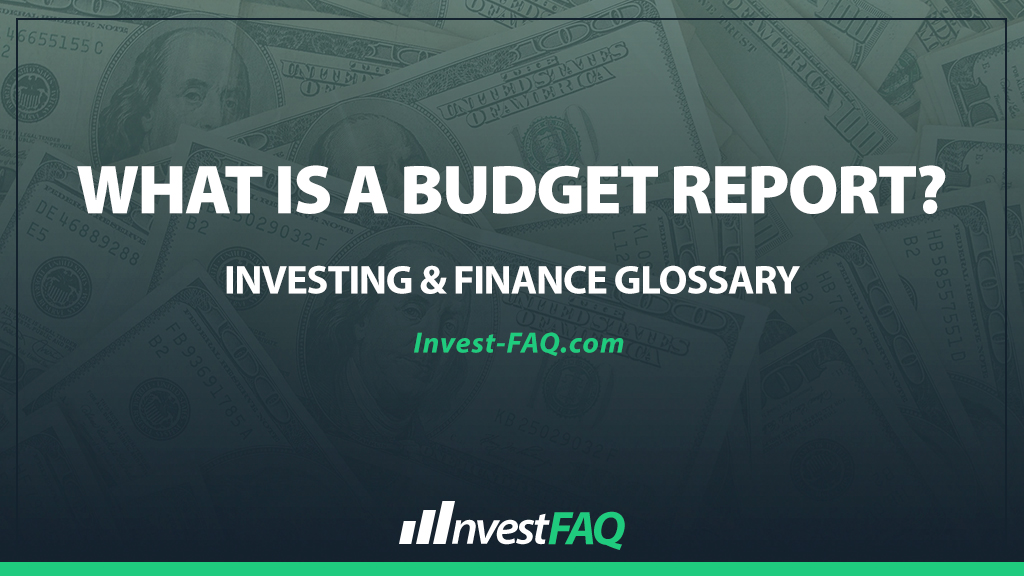
Budget Report
Contents
A budget report is a detailed document that compares the actual financial performance of a business against its budgeted forecasts over a specific period. It outlines variances between expected revenues and expenditures and the actual figures, providing insights into the financial health and operational efficiency of the organization.
In business, budget reports are essential for monitoring financial performance, identifying deviations from planned budgets, and making informed decisions.
They enable management to understand where the company stands financially, which areas are over or underperforming, and where adjustments may be necessary.
Regularly reviewing budget reports helps organizations stay on track with their financial goals, manage resources more effectively, and adapt to changing market conditions.
Example of a Budget Report
Imagine “EcoHome Furnishings,” a company that had budgeted $200,000 for marketing expenses in the first quarter but actually spent $250,000. Meanwhile, its sales revenue was budgeted at $1 million, but the actual revenue was $1.2 million for the same period.
The budget report for this period would highlight:
A positive variance of $200,000 in sales revenue, indicating better-than-expected performance.
A negative variance of $50,000 in marketing expenses, showing overspending against the budget.
In this scenario, the budget report reveals that “EcoHome Furnishings” exceeded its sales revenue targets, likely contributing to its overall financial health.
However, it also overspent on marketing, which could impact profit margins. The report provides a basis for management to investigate the reasons behind these variances, such as higher-than-anticipated demand leading to increased sales and perhaps more aggressive marketing strategies contributing to higher costs but also driving sales.
Significance for Investing & Finance
The significance of a budget report in accounting and financial management includes:
Performance Measurement: It serves as a tool for measuring the performance of different departments and the organization as a whole against planned objectives.
Strategic Decision-Making: Insights gained from budget reports guide strategic decisions, such as reallocating resources, adjusting strategies, or implementing cost-control measures.
Financial Control: Regularly reviewing budget reports helps maintain financial control by ensuring expenditures do not exceed budgeted amounts without justification.
Stakeholder Communication: These reports communicate financial performance and fiscal responsibility to stakeholders, including investors, creditors, and employees, building confidence in the organization’s management.
In summary, a budget report is a crucial instrument for tracking and managing an organization’s financial performance.
By providing a clear comparison of budgeted versus actual figures, it helps in pinpointing areas that require attention, enabling proactive adjustments to improve financial outcomes and strategic alignment with organizational goals.
FAQ
How often should a budget report be prepared and reviewed?
A budget report should be prepared and reviewed regularly, typically on a monthly basis, to ensure timely identification of variances and allow for corrective actions to be taken to align with financial goals.
What role does a budget report play in the annual financial planning process?
A budget report plays a critical role in the annual financial planning process by providing historical data on budgetary performance, which informs future budgeting decisions and helps in setting more accurate and achievable financial targets.
Can a budget report help in identifying areas for cost reduction?
Yes, a budget report can help identify areas for cost reduction by highlighting spending variances and pinpointing departments or activities where expenses exceed the budgeted amounts, suggesting potential opportunities for savings.
How should variances in a budget report be addressed by management?
Management should address variances in a budget report by investigating the reasons behind them, whether they are due to changes in market conditions, operational inefficiencies, or errors in budgeting, and then take appropriate actions to adjust operations or revise budget forecasts accordingly.
